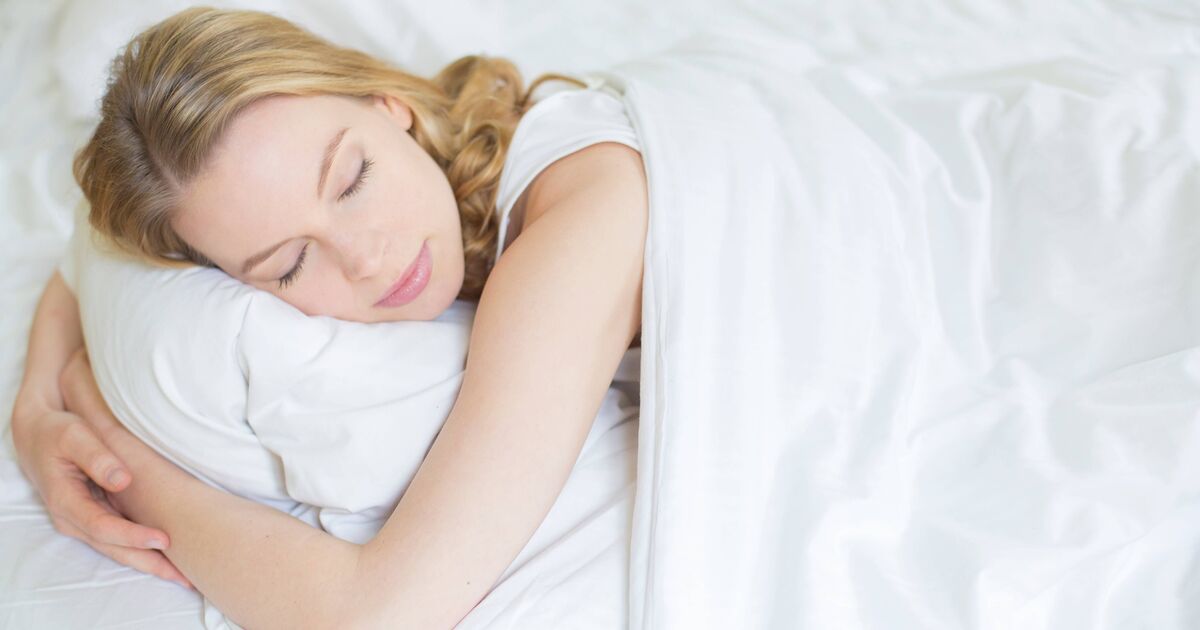A top sleep expert whose clientele has included Google and the Royal Marines says one particular treatment has been proven to be by far the most effective remedy for severe sleep disorders.
Dr Sophie Bostock is the founder of The Sleep Scientist and has a PhD from University College London. She appeared on the Zoe podcast to discuss how prevalent inadequate sleep is amongst our population and cited research which showed that 172 different diseases were “associated with” poor sleep.
She also shared her essential recommendations for achieving quality rest and outlined how detrimental sleep deprivation can be to our bodies. She explained that insufficient sleep triggered emotional reactions and substantial physiological responses as well, including harm to our immune system, heightened risk of hypertension and inflammation, heart disease and diabetes, plus an impact on our cognitive abilities.
She also mentioned that recent research had demonstrated people who get fewer than 5 hours sleep nightly were 30% more likely to develop dementia, reports WalesOnline.
Dr Bostock informed Zoe CEO Jonathan Wolf that one of the most significant contributors to poor sleep was people trying too hard to have good sleep. She explained: “I would probably say the number one reason for insomnia is anxiety about not sleeping well.
“If you go to bed thinking ‘I really need to try and have a good night’s sleep’ there is pretty good evidence that that will not improve your sleep. You know, the harder you try, the worse your sleep becomes.”
She explained that achieving quality rest begins “first thing in the morning”. She advised: “Wake up at the same time as often as you can. Aim to get some natural light, ideally within the first hour after waking. That’s going to kickstart your circadian rhythm for the day. And the advantage of doing that is that if you get this bright light in the morning, it’s going to banish the melatonin. So, you’re going to feel more alert but, automatically, 15 or 16 hours later you’re going to start to feel sleepy.”
Physical activity throughout the day proves crucial, she noted, stating: “Whichever way makes you feel happy, but get physical. be active. There was some recent research actually suggested that yoga was one of the best forms of exercise for sleep. So it doesn’t need to be super-intensive. It just needs to feel good for you.”
She emphasised that evening preparations are important: “As we come towards bedtime, try and have a consistent wind-down time. I’m not bothered about whether you get into bed at exactly the right time, but try and have a consistent time where you start to switch off.
“So in that hour of wind-down, get done what needs to be done for tomorrow, some form of relaxation, something to look forward to, whether it’s a warm bath or reading a book or doing some breath work, listening to music, some intimacy with your partner, with your family.”
Furthermore, Dr Bostock advised that during sleep you should aim for maximum darkness possible: “Use an eye mask or blackout blinds. Try and banish light from your sleep environment and just let it come.”
Dr Bostock noted that the contemporary issue of smartphones “have a lot to answer for” in disrupting sleep and that ultra-processed foods “tend to be linked to worse sleep”. She explained: “Ideally the phone does not come with you into the bedroom.”
Dr Bostock revealed cognitive behavioural therapy (CBT) is “the number one recommended treatment for insomnia”. CBT is a form of therapy where a therapist helps you to alter how you think and behave.
She described it as “a toolkit of different techniques” which encompasses sleep hygiene and tackling “unhelpful thoughts about sleep”.
However, Dr Bostock emphasised that insomnia is a specific condition, although its symptoms could be experienced more broadly.
She explained: “The clinical definition is a difficulty or a dissatisfaction with sleep at least three nights a week for three months or more that has a negative impact on daytime functioning. So if you have poor sleep but actually you’re coping really well during the day that’s not insomnia.
“[And] there has to have been adequate opportunity to sleep. So if you have a young mum of a baby, they probably haven’t had the opportunity to sleep. That’s not insomnia. That’s just parenting.”
On the topic of alcohol and sleep, Dr Bostock stated: “Alcohol can help to sedate you. So it can help you relax and perhaps pass out or get into something which looks and feels like sleep. The problem is that when you get into sleep, the quality of that sleep can be very disrupted.
“So, yes, it can make the time to fall asleep shorter, but once you’re asleep, you tend to end up with very fragmented sleep. So you might end up feeling a bit sort of irritable and perhaps not quite have the same memory of the night before as you would have had if you’d had a good night’s sleep.”

